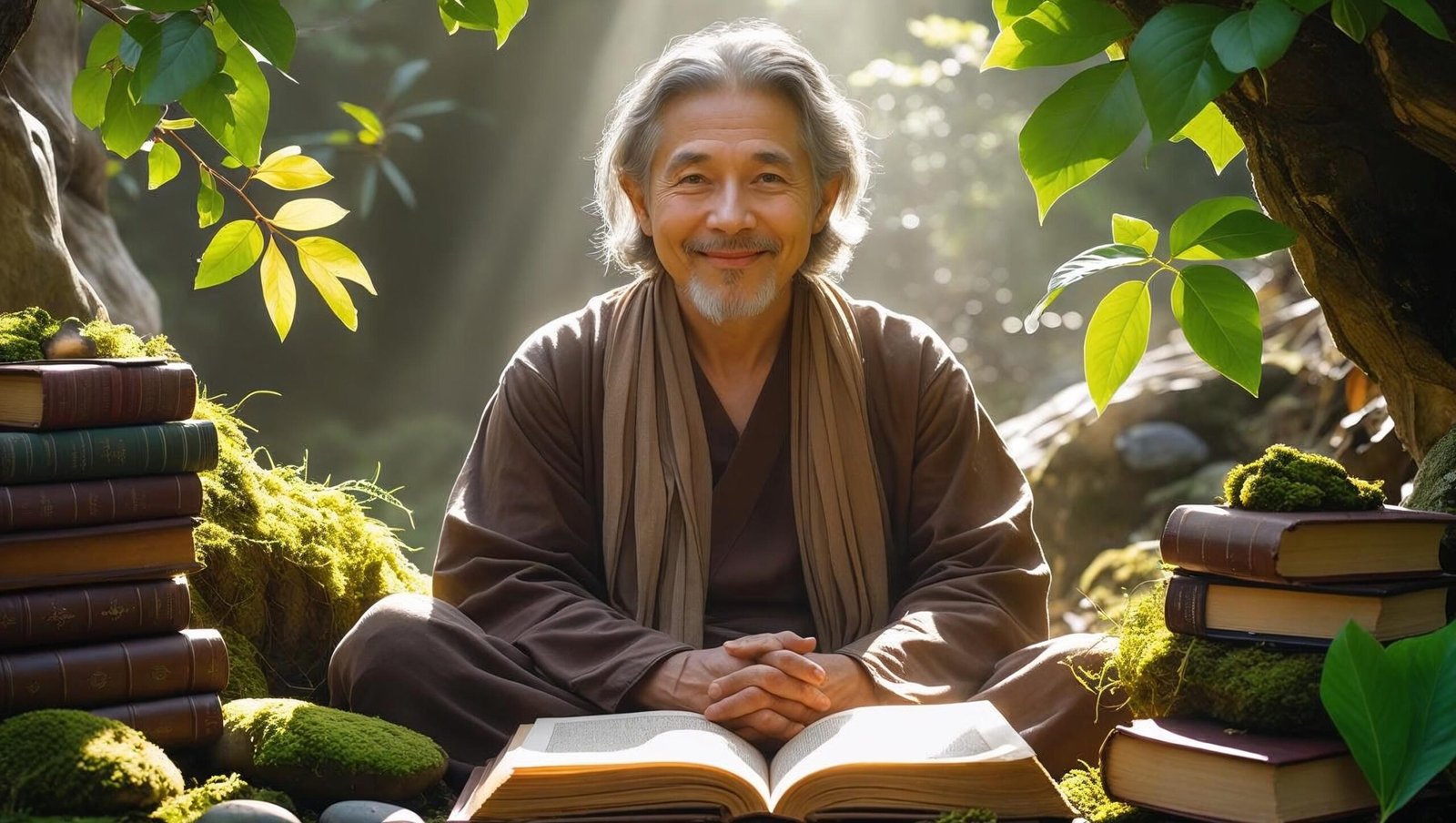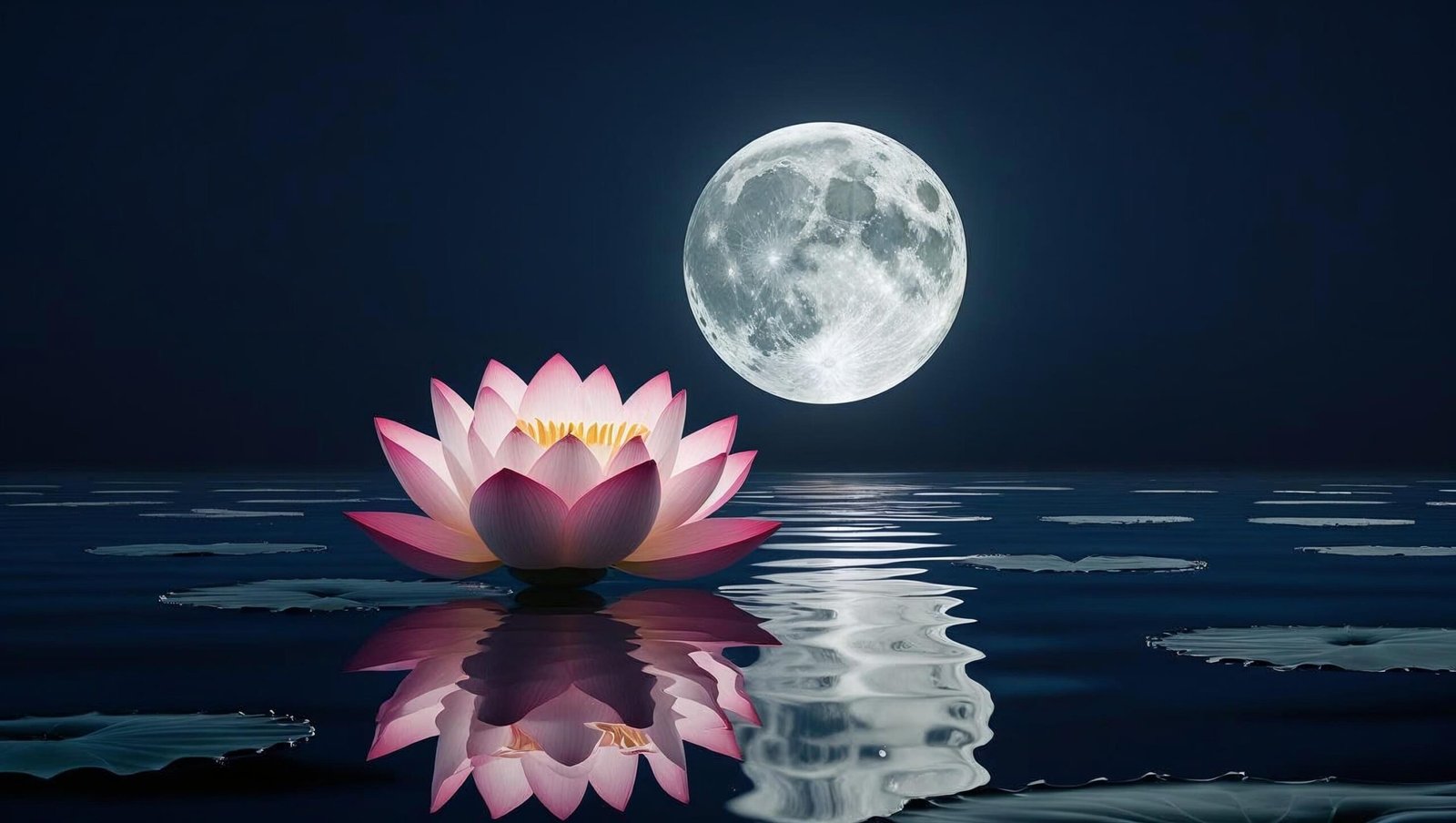10 Profound and Life-Changing Truths from The Power of Now by Eckhart Tolle
Introduction
Among the modern spiritual classics that have ignited a consciousness revolution, The Power of Now by Eckhart Tolle stands tall. First published in 1997, this groundbreaking book unpacks the simple yet profound truth that the present moment holds the key to freedom and enlightenment. In this extensive review, we shall explore Tolle’s central thesis, the 10 transformative lessons the book offers, how these insights connect with age-old wisdom, and why The Power of Now continues to hold relevance in an increasingly distracted world.

About the Author
Eckhart Tolle is a spiritual teacher and author of international acclaim. Born in Germany and educated at the University of London and Cambridge University, he experienced a deep inner transformation at the age of 29, which marked the beginning of his spiritual journey. Tolle has since dedicated his life to helping others find peace and purpose through presence. His work is not aligned with any particular religion but resonates with the mystical core of all traditions.
Overview of The Power of Now
The Power of Now is less a book and more a guide—a manual on how to return to your natural state of consciousness by anchoring yourself in the now. Through a series of dialogues, Tolle dismantles our addiction to time and thinking, and emphasizes the stillness, awareness, and peace found in the present. It teaches the reader to witness the mind without becoming entangled in it.
The structure of the book is conversational, often resembling a spiritual Q&A. Each chapter builds upon the last, drawing the reader deeper into the understanding of being. As a result, the book transcends the conventional format of self-help and becomes a mirror for your consciousness.
1. The Present Moment Is All You Ever Have
One of the most pivotal teachings in The Power of Now is the insistence that the present moment is the only reality. The past is memory; the future is imagination. True life unfolds only now.
Tolle writes, “Nothing ever happened in the past; it happened in the Now. Nothing will ever happen in the future; it will happen in the Now.”
This simple realization, when deeply understood, can dissolve anxiety, guilt, regret, and fear—all of which are rooted in non-present thinking. The power of now is the gateway to peace.
Living in the present moment does not mean ignoring your responsibilities or forgetting the past entirely. It means embracing the now fully, using it as your anchor. When you are conscious of the present, you respond to life with clarity, wisdom, and grace. The Power of Now illustrates this by offering powerful anecdotes, exercises, and thought experiments that center your awareness.
2. Identification with the Mind Is the Root of Suffering
Human beings are so thoroughly identified with their mental processes that they become prisoners of thought. Tolle introduces the idea of the “pain-body”—an accumulation of emotional pain that feeds off negative thinking and grows stronger the more you identify with it.
To break free, one must recognize this identification. You are not your thoughts; you are the awareness observing those thoughts.
The power of now begins with the detachment from this compulsive mental identification. In doing so, one discovers a dimension of consciousness that is unconditioned and free. Tolle’s words point toward an inner spaciousness—an oasis of calm in the midst of mental turbulence.

3. Watch the Thinker
Awakening begins with observing your own thoughts without judgment or involvement. This state of witnessing creates a space between you and the mind.
This act of “watching the thinker” allows you to disidentify from the mind and align with your true essence—the silent observer, which is your consciousness itself.
In The Power of Now, Tolle calls this the first step toward enlightenment. When you become the watcher, the mind loses its grip over your identity. You stop being reactive and begin to respond with mindfulness. This can transform your relationships, professional life, and inner emotional landscape.
4. Acceptance Is the Portal to Peace
The moment you resist what is, you create suffering. Tolle invites us to radically accept the present moment, regardless of whether it appears pleasant or painful.
“Accept—then act. Whatever the present moment contains, accept it as if you had chosen it. Always work with it, not against it.”
This attitude not only leads to peace but also makes you more effective in taking action from a state of inner alignment.
Acceptance does not mean resignation. Instead, it is the starting point of real change. Through The Power of Now, readers are reminded that inner transformation is not achieved by wrestling with circumstances but by allowing the present to be fully as it is.
5. The Illusion of Time
Tolle explains how psychological time—past and future—dominates our lives and prevents us from experiencing the now. While clock time is necessary for practical life, psychological time is responsible for most of our emotional pain.
By focusing attention on the now, you dissolve the illusion of time and open yourself to the timeless dimension of being.
The Power of Now emphasizes that time is a mental construct. Most suffering comes from regrets about the past or anxiety about the future. Yet life always unfolds in the present. Once you fully recognize this, each moment becomes a chance to awaken.
6. The Inner Body Awareness
A powerful technique Tolle recommends is to tune into your inner body. By placing awareness on the inner energy field of the body, you anchor yourself in the present moment and quiet the mind.
This inner body awareness becomes a portal into the unmanifested dimension—pure consciousness untouched by form.
Tolle suggests a practice of sensing the aliveness in your hands, feet, or entire body. This subtle energy field is always present but often overlooked. Through such practice, you strengthen your connection to the now.

7. Transcending Ego
The ego, according to Tolle, is a false self constructed by the mind. It survives by comparison, complaint, and drama. The ego is never content because it draws identity from external forms—possessions, roles, status.
Transcending the ego means becoming aware of its games and refusing to participate in them. This leads to a life of true authenticity, love, and connectedness.
In The Power of Now, Tolle exposes the subtle forms of egoic thinking—self-pity, superiority, victimhood, and identity through grievances. Each time we recognize these patterns and return to presence, we reclaim our power.
8. Silence Speaks
Words can point to the truth, but silence communicates it. Tolle encourages cultivating silence—not merely the absence of sound, but inner stillness.
“When you lose touch with inner stillness, you lose touch with yourself.”
Practices like mindfulness meditation, deep breathing, and simply being still help access this inner silence where the power of now resides.
Silence is not empty; it is full of answers. Through silence, your mind becomes receptive, your emotions calm, and your intuition sharper. The Power of Now beautifully articulates this sacred space.
9. Relationships as a Spiritual Practice
Instead of seeking completion in others, Tolle urges that relationships be viewed as a means of spiritual growth. The presence of others often triggers unconscious patterns, which, when observed mindfully, can be dissolved.
A conscious relationship is one where both partners are rooted in the present, not in projections or past wounds.
Tolle shows that our relationships mirror our inner state. When you bring the power of now into relationships, they transform from arenas of conflict to sacred grounds for awakening. Love blossoms not through neediness, but through presence.
10. Liberation Through Presence
Ultimately, The Power of Now is about liberation. Liberation from compulsive thinking, emotional suffering, egoic identity, and time-bound consciousness. Presence is not something to be attained in the future; it is who you already are underneath the noise.
Every chapter, every insight in this book circles back to this truth: the now is not just a moment in time—it is the space in which life happens.

Why The Power of Now Still Resonates
More than two decades after its publication, The Power of Now continues to sell millions of copies and change lives. In a world overwhelmed by digital noise, social media addiction, and perpetual busyness, Tolle’s message is not just relevant—it is essential.
His teachings offer a balm for the mental fragmentation of modern life. They invite us back to the sanctuary of the present, the only place where peace can truly exist.
The popularity of The Power of Now lies not only in its spiritual depth but in its practicality. Its teachings can be applied in everyday life—in conversations, in crisis, in traffic, and even in silence.
Criticisms and Cautions
While the message of The Power of Now is undeniably powerful, some readers may find Tolle’s language abstract or his spiritual terminology inaccessible. Others may mistake the call for presence as an excuse for passivity.
It’s essential to understand that presence is not about apathy—it’s about aligned action. You act not out of compulsion but from inner clarity.
Moreover, practicing presence is not about bypassing emotion but acknowledging it fully without identification. This is a subtle art that deepens with sincere practice.
Best Way to Read This Book
Read slowly. Pause after each chapter. Reflect deeply. The words are meant not just to inform but to transform. Highlight passages. Journal your insights. Practice the teachings.
This is not a book to rush. It is a manual for being.
Make it a part of your daily spiritual practice. Reread sections that resonate. Discuss it with mindful companions. Let it be a companion on your journey back to now.
FAQs on The Power of Now
Q1. Is The Power of Now religious?
No, it is spiritual but not religious. Tolle draws from multiple traditions without subscribing to any one religion.
Q2. Who should read this book?
Anyone feeling overwhelmed by thoughts, anxiety, or seeking deeper meaning in life.
Q3. Is the language easy to understand?
The book is philosophical, so some concepts may require slow and repeated reading.
Q4. Can this book help with anxiety and depression?
Yes, many readers report reduced anxiety by practicing presence as taught by Tolle.
Q5. Does the book offer practical techniques?
Yes, such as watching the mind, focusing on the inner body, and cultivating silence.

Conclusion
The Power of Now is not just a book. It is a living transmission. It does not give you more to think about but invites you to experience who you are beyond thought.
Whether you’re a seeker, skeptic, or simply curious about inner peace, this book is a profound doorway. Enter it not with analysis, but with openness. Let it guide you home—to the now.
The true essence of The Power of Now lies in its practical applicability. This is not a theory reserved for monks or mystics—it is for every human being navigating the turbulence of the 21st century. The book offers not just insight but transformation. Presence is not a mystical state reserved for the few—it is your natural state before the noise of the mind took over.
Many have shared how reading this book not only calmed their thoughts but healed their relationships and improved their mental clarity. In a world defined by restlessness, The Power of Now is a timeless reminder to live deeply, fully, and presently.
Revisiting the book at different stages of life brings new meaning each time. Its wisdom grows with the reader. Each re-read is not repetition but renewal. As you continue walking your path, let the teachings from this modern spiritual classic accompany you like a silent companion.
In embracing The Power of Now, we shift from doing to being. We become aware that our identity is not tied to what we achieve or accumulate, but to the awareness that experiences it all. This shift dissolves anxiety and anchors us in peace. No future goal can give us what the now already holds: the wholeness of being.
More importantly, The Power of Now empowers us to respond to life rather than react. It helps in breaking old patterns and conditioned responses that create suffering. Tolle’s message is clear—freedom begins in presence, and every moment offers that possibility.
We are conditioned to chase happiness in the next thing—be it a promotion, a relationship, or a possession. Tolle gently but firmly nudges us to realize that joy isn’t found somewhere else. It blooms when we stop, breathe, and become aware of the now.
The more we practice this awareness, the more natural it becomes. With time, the chatter of the mind loses its authority, and what remains is a calm, clear, and vibrant consciousness—a space where love, joy, and wisdom arise effortlessly.
Additional Reflections and Takeaways
- Mindfulness in Everyday Activities: One of the most powerful applications of The Power of Now is bringing awareness to everyday actions—eating, walking, listening, even waiting in traffic. When fully present, these become meditative and joyous.
- Freedom from Psychological Time: Letting go of the mental narrative about who you were or will be can be incredibly liberating. You don’t have to carry your past into the present moment.
- Healing Through Presence: Past traumas can lose their grip when met with conscious awareness. The present moment has immense healing potential when we are fully anchored in it.
- Enhanced Creativity: Many artists and thinkers speak of inspiration striking in the stillness of now. Tolle emphasizes that the power of now unlocks creativity by transcending the mind’s habitual limitations.
- Inner Stillness as Strength: We often equate strength with action. But stillness—when cultivated consciously—is one of the most potent forces. It gives clarity, poise, and wisdom in uncertain situations.
- Living Without Labels: Tolle encourages readers to drop mental labels that separate us from each other. Seeing life without interpretation can free us from conditioned thinking and connect us more deeply with others.
- Gratitude for the Present: Realizing that this moment is enough can bring a profound sense of gratitude. It’s not about having everything, but about experiencing everything more deeply.
- Transforming Suffering Into Consciousness: Every moment of suffering carries the seed of awakening. If you remain fully present with your pain without resisting it, transformation is inevitable.
Final Thought
As Tolle himself said, “Realize deeply that the present moment is all you ever have. Make the Now the primary focus of your life.” This simple truth is the essence of The Power of Now. Embrace it, practice it, and witness your life transform.
For more such deep-dive book reviews, visit shubhanshuinsights.com.
Powerful Comment Section Prompt:
What lesson from The Power of Now most deeply resonated with you? Have you experienced a moment of pure presence in your life? Share your journey in the comments below—your insight may inspire another reader!
7 Profound Lessons from The Tipping Point by Malcolm Gladwell: A Complete Review2 Transform Your Life Positively with Change Your Brain Every Day by Dr. Daniel G. Amen1 Don’t Sweat the Small Stuff Book Review – Uplifting Lessons from Richard Carlson on Living a Stress-Free Life1 Why We Sleep Book Review – A Fascinating Deep Dive into the Science of Slumber by Matthew Walker” 1 Think and Grow Rich by Napoleon Hill – A Definitive Blueprint for Success”